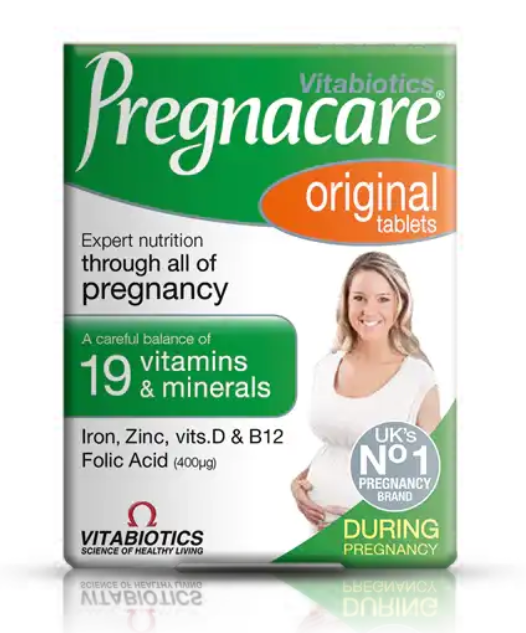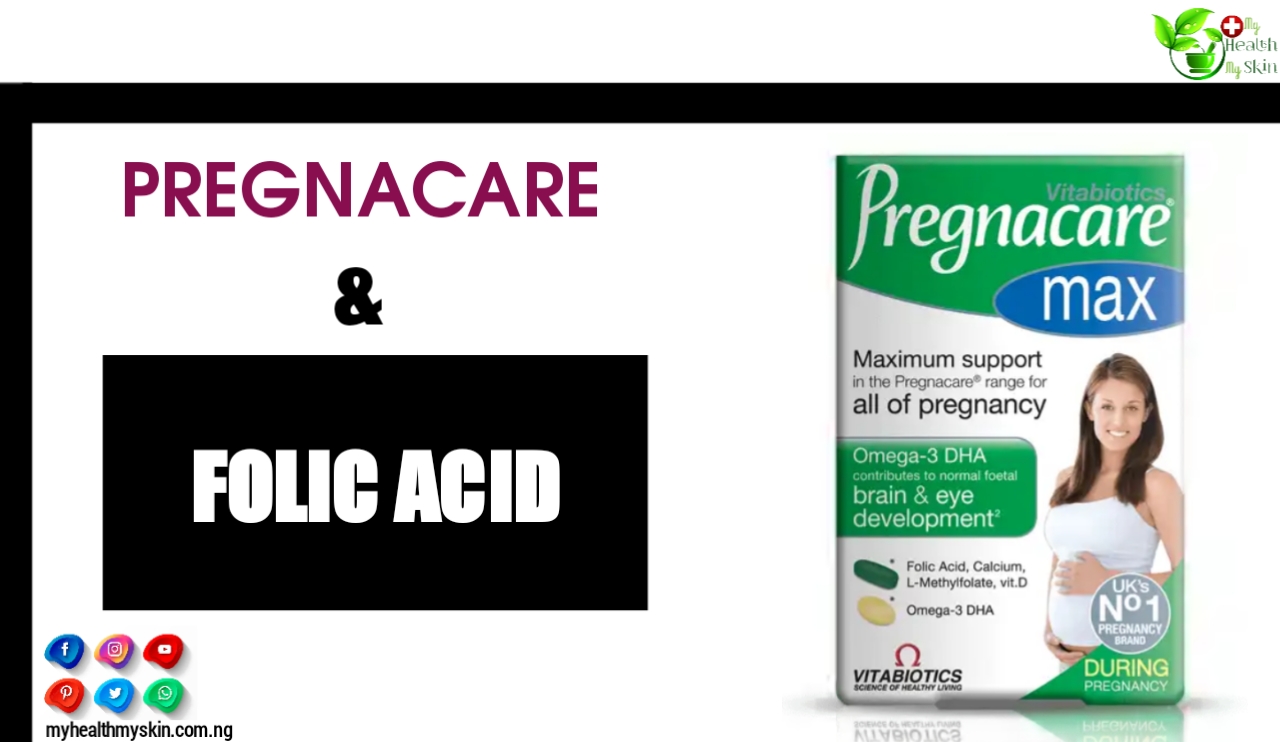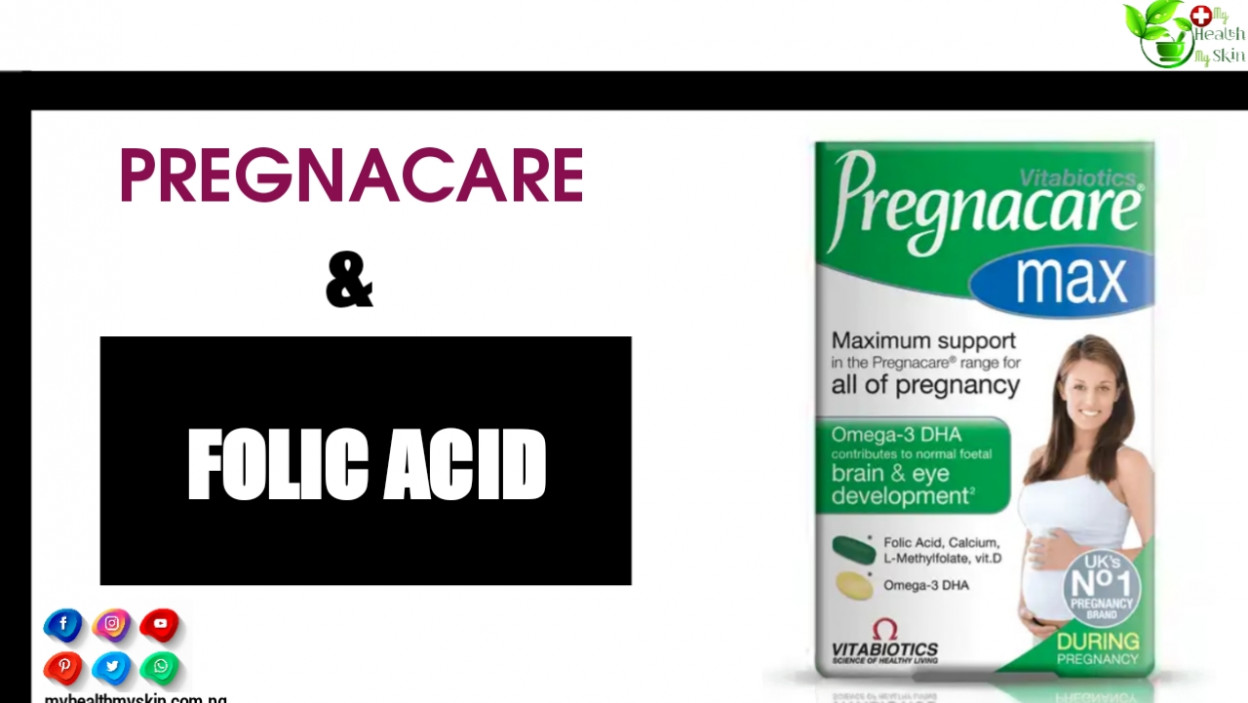Pregnacare is a prenatal vitamin supplement that has been endorsed for over 30 years. It is a scientifically advanced formulation by Vitabiotics, that puts years of study on pregnancy and nutrition in a single tablet. Pregnacare comes in many variants.
Pregnacare Plus for instance is suggested as soon as you start trying to conceive to help secure your nutritional needs before you find out, you are pregnant and throughout the time of your pregnancy.
Pregnacare Plus can be used for as long as needed, and can be started at any point in time of your pregnancy.
[lwptoc]

What Is Prenatal Vitamins?
Prenatal vitamins are supplements that include daily vitamins and minerals you require during and before your pregnancy. Folic acid is the most essential vitamin to take when planning a pregnancy.
The Folic acid is a B vitamin that cells in your body require for growth and development.
Taking 400 mcg of folic acid daily for at least a month during and before pregnancy can help reduce the risk for conditions with the baby’s brain and spine, known as neural tube defects (NTDs).
Most women, like those who have had a pregnancy affected by NTDs or with sickle cell disease, may require more folic acid.
Consult your doctor or nurse for advice about the dose that is right for you. Although, most nutrients should come from the foods you consume, but it’s also a good suggestion to take prenatal vitamins. Your doctor, nurse or midwife can suggest the best vitamins for you. Start taking folic acid at least a month before trying to conceive.
The first few weeks of pregnancy are really critical time for fetal health and development.
Taking folic acid and other prenatal vitamins can help lower the risk of some birth defects. Keep taking prenatal vitamins throughout your pregnancy.
Can I Take Pregnacare And Folic Acid Together?
Pregnacare prenatal vitamins provide extensive nutritional assistance which contains 400µg Folic Acid, the level of Folic Acid recommended for all women from the time of trying to conceive till the 12th week of pregnancy.
Please note: Doctors may occasionally prescribe a higher level of folic acid (5mg) for some women who are at higher risk (for instance, a family record of neural tube defects, women with diabetes or taking anti-epilepsy medicine).
Pregnacare may still be taken alongside, of course in consultation with your doctor, If this is the case.
However, generally speaking an additional folic acid supplement is not required along side Pregnacare, as it includes the recommended level for most women.
Side Effects Of Prenatal Vitamins
Many people wonder about prenatal vitamins side effects. A lot of people get nauseated or constipated from taking prenatal vitamins. If this happens to you, discuss with your doctor about changing brands or the kinds of vitamins you’re taking.
Prenatal vitamins come in capsules or tablets, so discovering the type that works best with your body can help ease side effects. Your doctor or midwife can assist you in finding a prenatal vitamin that will work best for your body.
Prenatal Vitamins: Diet During Pregnancy
In as much as taking prenatal vitamins, at some point in your pregnancy, you might prefer to eat absolutely nothing. Also, at some another point, you might prefer to eat everything in sight.
During pregnancy, you are at a higher risk for food-borne illnesses. Wash hands and surfaces always, cook foods thoroughly, keep raw and prepared foods different, and do not eat cooled foods that have been allowed to get warm or cooked foods that have frozen outside of a refrigerator.
Foods To Avoid During Pregnancy;
- Raw or underdone eggs (homemade Caesar sauce, hollandaise sauces, soft-boiled eggs, meringue pies)
- Raw dairy products (unpasteurized milk or cheeses; soft cheeses such as: feta, blue, queso fresco blanco brie, camembert and gorgonzola)
- Refrigerated or deli patés, smoked seafood, meat spreads, (lox, salmon or trout; always labeled nova style, kippered or jerky)
- Raw or rare meat
- Raw or undercooked shellfish
- Raw fish (sushi)
- Hot dogs, Deli meats, lunch meats (UNLESS they are heated until they are steaming)
- Raw sprouts (alfalfa)
- Fish with high levels of mercury such as: shark, swordfish, king mackerel and tilefish
Limit fish consumption to 12 ounces every 7 days. Avoid tuna steaks, but up to 6 ounces of canned tuna can be consumed each week. Limit locally-caught fish to 6 ounces per week.
You May Also Like:
- How Many Weeks In 9 Months Pregnancy?
- What Is The Role Of Clear Watery Discharge During Pregnancy?
- Discharge During Pregnancy: Should you Panic?
- From The First Signs Of Pregnancy To Childbirth
- Omega-3 For Pregnant And Lactating Women: Discover The Benefits
- Vaginal laxity: 3 Best Safe Ways to Tighten Your Vagina Explained
Most Frequently Asked Questions
Can you still take Pregnacare after giving birth?
Pregnacare Breastfeeding can also be taken as a general postnatal supplement for 6-9 months postpartum or longer AND if necessary, to replenish depleted nutrients and support the body after pregnancy, even if you are not breastfeeding.
So, can I take Pregnacare after giving birth?
If you’ve had your baby and are looking for a supplement that will support you as a new mother and while breastfeeding, the Pregnacare A range offers a range of supplements that may be best suited for you. However, you can take these pills when you are breastfeeding without any problems.
Second, how long can you take prenatal vitamins after giving birth? When you take them AND don’t skip your prenatal vitamins after birth — Populate them for at least four to six weeks after, or until you stop breastfeeding, to protect both you and your baby from nutrient depletion and to get off to a good start the first few months together.
Also to know, can I still take my prenatal vitamins after giving birth?
It is best to take prenatal vitamins throughout your entire pregnancy. Your healthcare professional may recommend continuing to take prenatal vitamins after the baby is born – especially if you are breastfeeding.
Does Pregnacare Have Any Side Effects?
Most women who take prenatal vitamins as directed by their doctor or midwife experience little or no side effects from prenatal vitamins. The iron in prenatal vitamins can cause constipation and some women complain of nausea. You may also have diarrhea, dark stools, lack of appetite, and stomach pains or cramping.
Is there a difference between prenatal and postnatal vitamins?
Some doctors recommend that women continue to take their prenatal vitamin after the baby is born, but postpartum vitamins add nutrients to support mothers who are breastfeeding or not. Postpartum vitamins include vitamin D, vitamin B6, and vitamin B12, which are essential for keeping mother and baby healthy.
Can I still take folic acid after giving birth?
What vitamins should I take to breastfeed?
When should I start taking Pregnacare?
Can you take folic acid and Pregnacare together?
How can I restore my nutrients after pregnancy?
Should I take vitamins after giving birth?
Is Vitamin E Good for Breastfeeding Mothers?
Should I continue to take prenatal care while breastfeeding?
What vitamins help postpartum hair loss?
What happens if you don’t take prenatal vitamins during pregnancy?
Do prenatal vitamins help with milk supply?
Which prenatal vitamin is best?
Are prenatal vitamins necessary?
If you want to read more articles similar to Can I Take Pregnacare And Folic Acid Together, we recommend you visit our Women’s Health category.

Did You Know That Taking Folic Acid And Other Prenatal Vitamins Can Help Lower The Risk Of Some Birth Defects? Comment Below!







